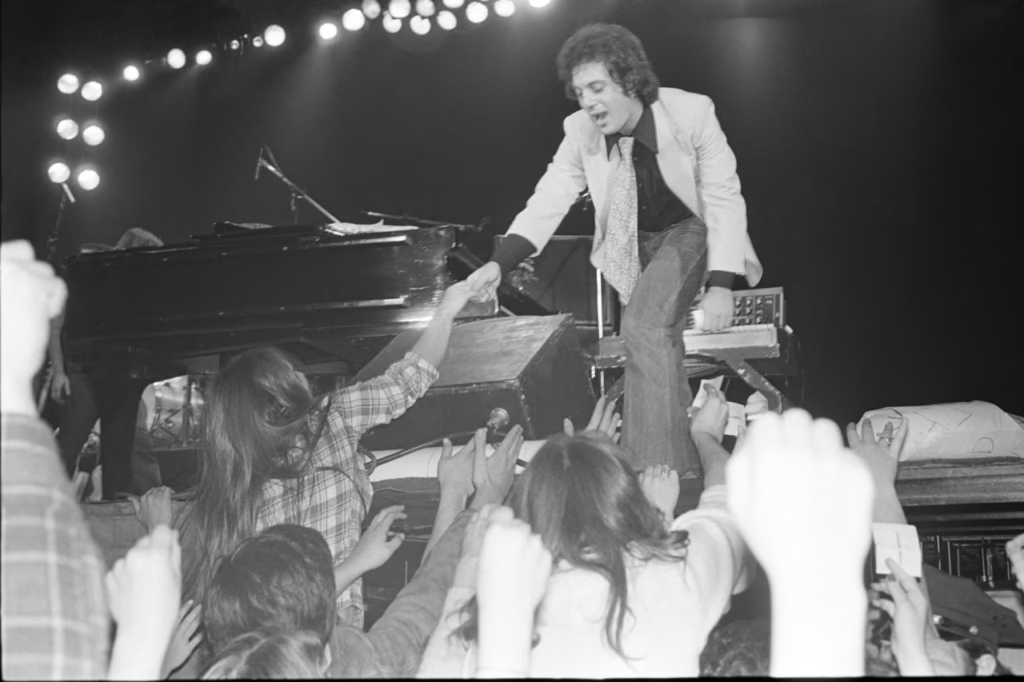The new two-part Billy Joel documentary, “And So It Goes,” arrives on and Max with high expectations. Viewers get unprecedented access to the songwriter’s archives, candid interviews and five hours of music history that span six decades.
A Documentary Years in the Making
Filmmakers Susan Lacy and Jessica Levin, veterans of PBS’s “American Masters,” spent three years piecing together this portrait. They filmed during the pandemic, followed Joel backstage at Fenway Park and persuaded his inner circle to speak on camera. Executive producers Tom Hanks and Sean Hayes added Hollywood weight, but Joel never demanded editorial control; he simply told the team “tell the truth”.
Release Strategy: Two Nights of Event Television
Part One premiered on HBO at 8 p.m. ET on July 18 2025, with Part Two set for July 25 at the same time. Both episodes stream on Max, where subscribers can watch ad-supported for $9.99 a month or go ad-free for $16.99. Each segment runs roughly two-and-a-half hours, pushing total runtime close to five hours.
Why the Billy Joel Documentary Matters Now
Interest in the Billy Joel documentary surged after the singer disclosed his battle with normal pressure hydrocephalus earlier this year, forcing him to cancel a stadium tour. The film therefore doubles as both retrospective and timely update, showing him rehearsing for his record-breaking Madison Square Garden residency while confronting new health challenges.
A Chronological Story with Emotional Flashbacks
“And So It Goes” moves album by album but breaks timeline rules when emotion demands. Childhood trauma linked to his parents’ escape from Nazi Germany surfaces midway, connecting directly to the introspective song “Vienna”. Directors weave 110 of his 121 released songs into the score, letting the music guide narrative turns.
Revelations and Raw Honesty
Critics highlight the documentary’s willingness to tackle difficult chapters:
- Joel’s two early suicide attempts and lengthy depression get frank treatment.
- Former wife and manager Elizabeth Weber speaks on camera about their turbulent marriage and business split.
- Long-time drummer Liberty DeVitto recalls the drinking culture that dominated early tours, describing a band that “loved our alcohol”.
- Never-before-seen footage shows Joel performing “Piano Man” at Columbia Records the day he signed his contract.
These moments help the Billy Joel documentary avoid the puff-piece trap, though some reviewers still call it “worshipful” in tone.
Star-Studded Commentary
Paul McCartney admits he wishes he had penned “Just the Way You Are”. Bruce Springsteen praises Joel’s melodic range, while Nas explains how “Scenes from an Italian Restaurant” influenced his storytelling style. Garth Brooks, P!nk and Sting also appear, underscoring Joel’s cross-genre appeal.
Critical Reception: Mixed but Mostly Warm
Rolling Stone applauds the film’s “startling honesty” and calls it a “high-quality, thorough examination”. NPR finds it “revelatory” yet notes the balance between access and objectivity. Slate’s critic, a self-described Joel skeptic, complains that the five-hour cut still feels “deficient in creative presentation,” arguing the music discussions verge on hagiography. Despite quibbles, Rotten Tomatoes lists an 88 percent audience score after opening weekend.
Themes That Resonate with New Audiences
Younger viewers encounter a musician who grappled with mental health, financial betrayal and public scrutiny long before social media magnified celebrity flaws. The Billy Joel documentary shows how those struggles shaped songs like “Captain Jack” and “The Downeaster ‘Alexa,’” giving fresh context to lyrics often relegated to classic-rock radio.
Filmmaking Craft: Archival Depth and Cinematic Scale
Joel’s boat, MiddleSea, becomes a visual anchor, symbolising his journey from oyster-boat deckhand to mansion owner. Drone shots of Long Island coastline fade into Super 8 home movies, while the soundtrack layers isolated piano tracks under spoken recollections. Editors Kris Liem, James Pilott and Steven Ross knit these elements into a brisk narrative that rarely lingers on a single song for more than a minute.
Where the Billy Joel Documentary Breaks New Ground
Most music films end with the subject’s biggest hit, but Part Two continues past Joel’s early-nineties songwriting halt, covering his classical experiments, his Garden residency and his surprise 2024 single “Turn the Lights Back On”. By stretching beyond commercial peak years, the Billy Joel documentary argues that artistic relevance can evolve even when new pop albums stop.
Potential Impact on the Joel Catalog
Streaming numbers exploded after Part One aired; Apple Music recorded a 240 percent spike in “Vienna” by Monday morning. Columbia Records has already announced a remastered box set timed to the documentary’s finale. Archive director John Jackson says the film may “unlock vault tracks” for future releases.
Final Verdict
Fans will savor the intimate footage and deep songbook dive. Newcomers will find a complex character whose triumphs and missteps both shaped American pop culture. While not free of hero worship, the Billy Joel documentary succeeds in telling a human story behind stadium-sized melodies. It proves that, even at 76, the Piano Man can still surprise us — and that truth, told well, always makes the best encore.
Read More: Billy Joel Health Update: Rare Brain Disorder Explained

